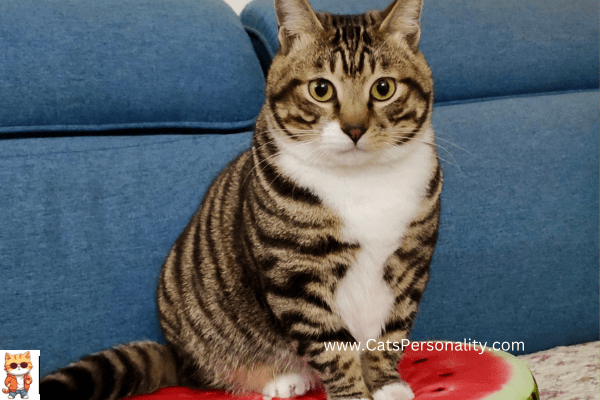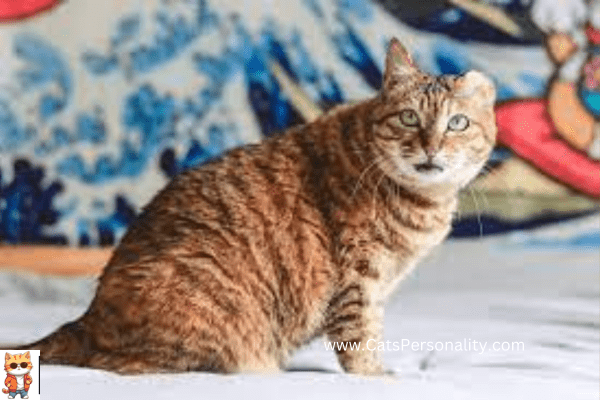Introduction: What Makes Bengal Cats So Special?
Bengal cats are active and affectionate companions. Explore their unique traits and how to keep them happy and healthy. Bengal cats are more than just a beautiful pet—they are a living work of art. What sets them apart from other cats is their exotic, wild appearance, which resembles that of a jungle cat, yet they possess the affectionate, playful, and social nature of domestic cats. These felines are known for their dazzling coat patterns and colors, ranging from sleek marbles to bold spots, all inherited from their wild ancestor, the Asian leopard cat.
Table of Contents
ToggleIn 2024, the Bengal breed has seen a surge in popularity, as more people are drawn to their striking appearance and their dynamic, energetic personalities. Bengal cats are ideal for owners who are active, love to play, and want a cat that engages with them.
History of the Bengal Cat
The Bengal cat is not your average domesticated breed. Its origins trace back to the 1970s when a breeder named Jean Mill crossed a domestic cat with an Asian leopard cat (Prionailurus bengalensis). This hybrid resulted in a cat that retained the beauty and wildness of its ancestor but with a temperament that was more suited for a home environment.
Over the years, the Bengal breed has evolved, with breeding programs focusing on reducing hybrid characteristics while preserving their unique appearance. Today, Bengal cats are fully recognized as a domestic breed by major cat registries like the TICA (The International Cat Association) and the CFA (Cat Fanciers’ Association).

Characteristics of Bengal Cats
Bengal cats are truly a sight to behold.
- Coat Patterns: Bengal cats are most famous for their stunning coat, which comes in two primary patterns—spotted and marbled. Their coats are short but dense and often feel like velvet to the touch. Spotted Bengals have randomly arranged spots, while marbled Bengals feature a beautiful swirling pattern.
- Color: Bengal cats are usually golden, brown, or rosette-like with a shimmering “glitter” effect that gives their fur a unique, lustrous glow.
- Size: These cats are typically larger than the average domestic cat, with males weighing between 10-15 pounds and females around 8-12 pounds.
- Temperament: Bengals are known for being extremely energetic and intelligent. They love interactive play, problem-solving, and can even learn tricks or fetch! While they may not always be as snuggly as some other breeds, they are incredibly social and form strong bonds with their owners.

Popular Bengal Cat Breeds in 2024
The Bengal breed has evolved over time, with different varieties gaining popularity. Let’s take a look at the most sought-after Bengal cat breeds in 2024:
1. Classic Bengal
The “classic” Bengal is the most recognizable version, with a shimmering, golden-brown coat featuring black spots or rosettes. This type mimics the look of a wild leopard, complete with a sleek, muscular frame.
2. Marbled Bengal
Marbled Bengals feature striking swirls of color across their coat. The marbling is less chaotic than the spotted variation and resembles the flowing patterns seen on marble stone. This breed has a graceful and elegant appearance.
3. Spotted Bengal
Spotted Bengals have a truly exotic look, with spots ranging from small and round to large and irregularly shaped. These cats often have a “wild” look, and their spots can be highly contrasted against their background color.
4. Snow Bengal
Snow Bengals are a lighter-colored variation, ranging from cream to light beige with blue or green eyes. Their coats often have a distinctive “frosted” look that makes them stand out from the typical golden or brown Bengals.

The Best Bengal Cat Breeds for Families
Bengal cats, while active and energetic, can be a great addition to family homes. However, certain Bengal types might be better suited for specific living situations.
- Families with Young Children: If you have young children, the spotted Bengal might be your best choice. Their playful nature and willingness to engage in active play make them a fantastic companion for kids.
- Families with Other Pets: Bengals tend to get along well with other animals, including dogs. The marbled Bengal, with its more laid-back personality, may be a better choice if you already have pets in the home. They have a calmer temperament compared to other Bengals.
- Low-Maintenance Family: The snow Bengal may appeal to those who prefer a lighter-colored, quieter cat, especially in households where space is limited. Snow Bengals tend to have a slightly more mellow personality than their more vibrant counterparts.
Bengal Cats and Their Health: What to Know
Like all breeds, Bengal cats can experience specific health issues.
- Hypertrophic Cardiomyopathy (HCM): A genetic heart condition found in some Bengals. Regular vet check-ups and a healthy diet can help mitigate risks.
- Progressive Retinal Atrophy (PRA): A condition that can lead to blindness. Again, early detection through regular check-ups is key.
- Obesity: Due to their active nature, Bengals require a diet that matches their energy levels. Obesity can be a concern if their exercise needs are not met.
By taking care of their dietary needs and ensuring they get enough physical activity, you can keep your Bengal cat happy and healthy for many years.

Bengal Cat Grooming: Tips and Tricks
Bengal cats are low-maintenance when it comes to grooming, but their unique coat does require attention:
- Brushing: Their short coats don’t mat easily, but a weekly brushing session can help remove loose hairs and keep their coat looking sleek.
- Nail Trimming: Like all cats, Bengal cats need regular nail trimming. They are especially active, so keeping their claws in check will help prevent damage to your furniture and ensure their comfort.
- Bathing: While not often necessary, Bengals enjoy the occasional bath, and their coat is naturally water-resistant. If your Bengal is prone to getting dirty, a gentle, cat-safe shampoo is a good idea.
How to Choose the Right Bengal Cat Breed for You
Before you adopt a Bengal cat, consider these factors to find the best breed for your lifestyle:
- Activity Level: If you’re looking for a high-energy companion, opt for a spotted Bengal.
- Living Space: Bengals thrive in larger homes with ample space to roam. If you’re in a smaller apartment, a snow or marbled Bengal may be more adaptable to confined spaces.
- Social Needs: Bengals are highly social and can become lonely or destructive if left alone too long. If you have a busy schedule, ensure you can provide your Bengal with the social interaction it craves.

Bengal Cats in 2024: Trends and Insights
In 2024, Bengal cats are seeing increased interest in several key areas:
- Hybrid Bengals: There is a growing trend of hybrid Bengals, which have a higher percentage of wild ancestry. These cats often come with unique markings and personalities but require experienced owners due to their more intense energy levels.
- Ethical Breeding: As awareness around hybrid breeding grows, there’s a focus on ethical breeding practices that prioritize the well-being of both the wild ancestors and the domestic Bengals.
- Bengal Cat Community: In 2024, Bengal cat owners are more connected than ever, sharing advice, experiences, and tips through online communities, making it easier for new owners to learn and engage.
Conclusion: Is a Bengal Cat the Right Pet for You?
Bengal cats offer a unique combination of wild beauty and domestic charm that’s hard to resist. However, they require an active, engaging home and a lot of attention. If you’re prepared to meet their physical and emotional needs, a Bengal cat can make a fantastic and loyal companion. Whether you choose a spotted, marbled, or snow Bengal, you’re guaranteed a striking, intelligent, and energetic feline friend that will bring joy and adventure into your life.
If you’re ready to welcome one into your home, make sure to find a reputable breeder or adoption center to ensure your Bengal cat is healthy and well-socialized.

